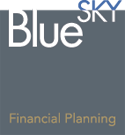Not the wisest advice perhaps with the diddly squat interest we all currently receive in our bank accounts. Of course, having accessibility and flexibility is important and for this we sacrifice better returns from other mediums. Frustrating however, that we are effectively paying the bank for looking after our money!
This blog isn’t really about cash deposits, it’s about another type of bank account… an emotional bank account.
I initially intended writing this blog about the emotional reasoning behind people who hoard huge amounts of money on deposit, but on receiving a blog this week from a business associate, Andy Bounds, I decided to switch tack on the emotional theme. Don’t worry, I’m not letting you hoarders off the hook, I’ll just have to write about it another time.
Andy Bounds doesn’t have an easy life. He is a Man Utd fan living in Liverpool for a start! But on a more serious note, Andy has been described by AstraZeneca’s Global Communication Director as “a genius, whose advice can’t be ignored”. Andy’s insights and passion stem from his mother being blind. This has given him a lifetime’s experience of communicating from someone else’s point of view.
Don’t let your emotional bank account go into overdraft territory
Your bank account: the balance goes up and down when money goes in or out. You can withdraw more than you invest but you can’t keep doing so otherwise you’ll be in an awful financial state.
Andy referred to a book by Stephen Covey entitled ‘The 7 Habits of Highly Effective People’, highlighting that Covey likened relationships to an emotional bank account.
Your emotional bank account: the balance goes up and own when you/they do things to help each other. You can withdraw more than you invest but you can’t keep doing so otherwise your relationship is ruined.
Living a fulfilling life
We are always talking about living the life you want here at Blue Sky, but, of course, consideration needs to be given to those around us with an understanding of what they want too.
Andy Bounds states that to enhance our relationships, we need to consider the following:
- Proactively and regularly invest in them, by thinking and doing things the other person likes
- If we keep investing but they don’t, we’ll think it’s unfair. We’ll stop trying
- But if they keep investing and we don’t, they’ll think it’s unfair. They’ll stop trying eventually
- We have many ways to give a huge ‘cash injection’ – we should do these
- There are ‘withdrawals’ that are so big – breaking our promises, letting them down – that our account will never recover
I’ve put my head above the parapet now!
Hopefully, I’m in credit in all my accounts but I’ll soon find out after writing this no doubt! It just made me think about the danger of becoming embroiled and absorbed in things to the exclusion of others. It’s important to look outwards and not just inwards!
Suggestions from Andy
We should action the following:
1. Identify our most critical relationships
2. Ask ourselves whether we’re in credit, debit or neutral
3. Invest to add more value
4. Avoid the big no-nos
Relationships with money
We think that managing money is a critical relationship and believe that a greater connectivity around planning for the future enhances emotional well-being and allows partners to have a more positive engagement. As we have seen on many occasions, the root cause of anxiety in a relationship can often be due to worries and fears around money.
Remember to keep all your accounts topped up!
Best wishes.
Gary
Gary Neild B.Sc.Hons. DipIP PFA
Chief Executive Officer
P.S. To prove I listen to Andy, I’ve taken Wednesday and Friday off this week and although I am playing golf on both days, on Friday I’ll be with my eldest son and so I think this tops up that account. He doesn’t know yet, but we are teeing off at 7.20am!

Risk warning
Please Note: This communication should not be read as giving specific advice regarding your personal circumstances. This would only be given following detailed assessment of your individual needs. The value of investments may fall as well as rise; you may get back less than invested. Past performance is not necessarily a guide to future returns.


